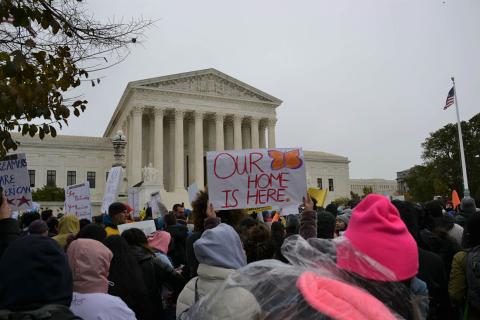
Tens of thousands of people have taken to the streets to protest police violence and to demand criminal justice reform in the wake of too many cases of excessive violence, mass incarceration, and sentencing inequities toward people of color in this country, especially black men.
The protests have grown from primarily African-Americans to now include people of all races, backgrounds, and social-economic levels. From community activists to students to famous athletes and movie stars, this movement for social change has taken on a more urgent sense than most in recent years.
And for the first time in a long time, some positive steps have already been taken.
Police officers have been fired, arrested, and charged with murder for their actions. Police Chiefs have resigned. Cities have decided to reallocate some funding from police departments to social services that can better deal with mental health issues, substance abuse, and other non-criminal calls that too often lead to an escalation of force.
The US Navy, Marine Corps, and Army recently decided to ban the display of Confederate flags in all public places they control and have indicated a willingness to rename military bases bearing the names of Confederate leaders that were traitors to the US. Even NASCAR banned Confederate flags from their races.
And several cities have already taken down Confederate statues and calls for Mississippi to remove the rebel flag from its current started flag are gaining traction.
Overall, the movement against racial bias and toward social equity seems to be moving our country in a more progressive direction where generations of systemic racism and disenfranchisement of minorities have left us with a very stratified nation of a few haves and millions of have nots.
But while all of these political and social debates and protests have been raging in the streets, some Trump critics have complained that the President has not addressed the country to help ease tensions and lay out a clear path forward. The few comments Trump has made seemed more to pour gasoline on the fire than to soothe the anguish.
But Donald Trump and his allies haven’t just been hiding or twiddling their thumbs as the country seems to tear itself apart; instead, they have been busy reshaping the judicial makeup in federal courts that could have a more lasting effect on our country than anything else Trump could single-handedly do from behind the Resolute Desk in the Oval Office.
This week, Donald Trump secured his 200th federal judge appointment with the blessing of the US Senate, now surpassing the total George W. Bush appointed in two full terms. These judges, appointed under the Constitution’s Article III provisions, are life-time terms, meaning some could serve for the next 30 years or more.
Senator Mitch McConnell, the Republican Senate leader, has not been shy about his priority to appoint as many judges as possible while Republicans control both the White House and the Senate. McConnel was the one that blocked then-President Barack Obama’s Supreme Court nomination of Merrick Garland from March 2016 until Trump was inaugurated, securing an additional Supreme Court seat for Republicans.
Conservative operatives have long focused on the courts as the best way to influence society through conservative decisions on important issues like abortion, immigration, gay marriage, and other areas that have progressed in recent decades. There is a robust system that recruits young conservative law students and mentors them through court clerkships, law firm jobs, and lower court appointments to build a deep bench for future federal court appointments by Republican presidents.
When Democrats and even some Republicans have criticized Senate Republicans for supporting Trump in spite of his bombastic antics, McConnell and others have pointed to their success in appointing conservative judges as their defense for remaining loyal to a president that has abandoned most other pillars of the GOP, including his opposition to free trade, use of tariffs, opposition to international agreements and alliances, and retreat of protections for Eastern Europe against Russia, just to name a few.
Whatever damage Trump may be doing to the Republican brand he is more than making up for it by appointing conservative judges that could continue to toe the line on the bench even in the face of rapidly-changing and progressing views on social issues by the country at large.
In just the past twenty years, our country has embraced gay marriage, marijuana legalization, protection of abortion rights, and a growing acceptance of legal protections for undocumented immigrants that were brought to this country as minors and are now as American as anyone born here. The courts have been the battleground for much of the progress made on these issues, and they will continue to be so in the future.
When Democrats tell their voters that a lot is at stake in this election, one of the clearest examples to point to is Trump’s judicial appointments. Even if Trump loses this election, he will have left in place a legacy of conservative judges that are expected to carry on a history of regressive, punitive, and anachronistic legal thinking that is quickly falling behind where our society is going.
In recent months, Mitch McConnell has reached out to older sitting Republican judges, urging them to retire this year to give Trump an opportunity to name their replacements while they have control and just in case either Trump loses, or Republicans lose their majority in the Senate.
But if Trump is re-elected, and the Senate remains under the control of Republicans, Americans can expect an even more accelerated pace of conservative judicial appointments. Generations of legal decisions hang in the balance. From DACA to amnesty to the Affordable Health Act and Roe v Wade, Trump appointees could stymie progress or even turn the clock back on gains made in recent years.
There are 870 federal judge position in the United States.
Barack Obama appointed 329 federal judges during his two terms, including Supreme Court Justices Sonia Sotomayor and Elena Kegan. Bill Clinton appointed 378, including Supreme Court Justices Ruth Bader Ginsberg and Steven Breyer.
So far, Trump has outpaced them both, and with another term, he could easily surpass 400 federal appointments and one or maybe even two more Supreme Court Justices.
